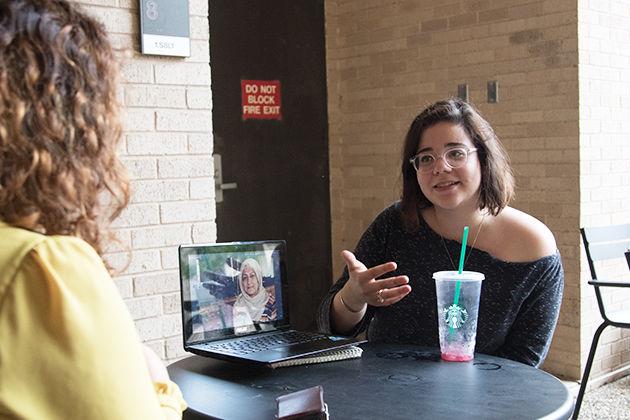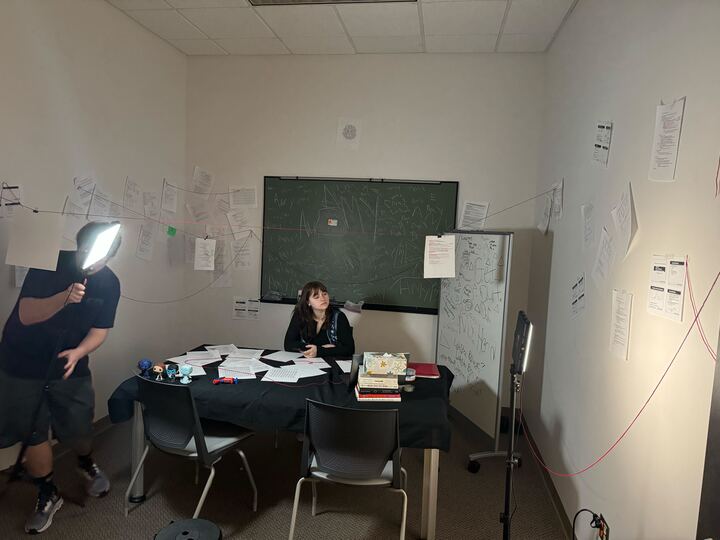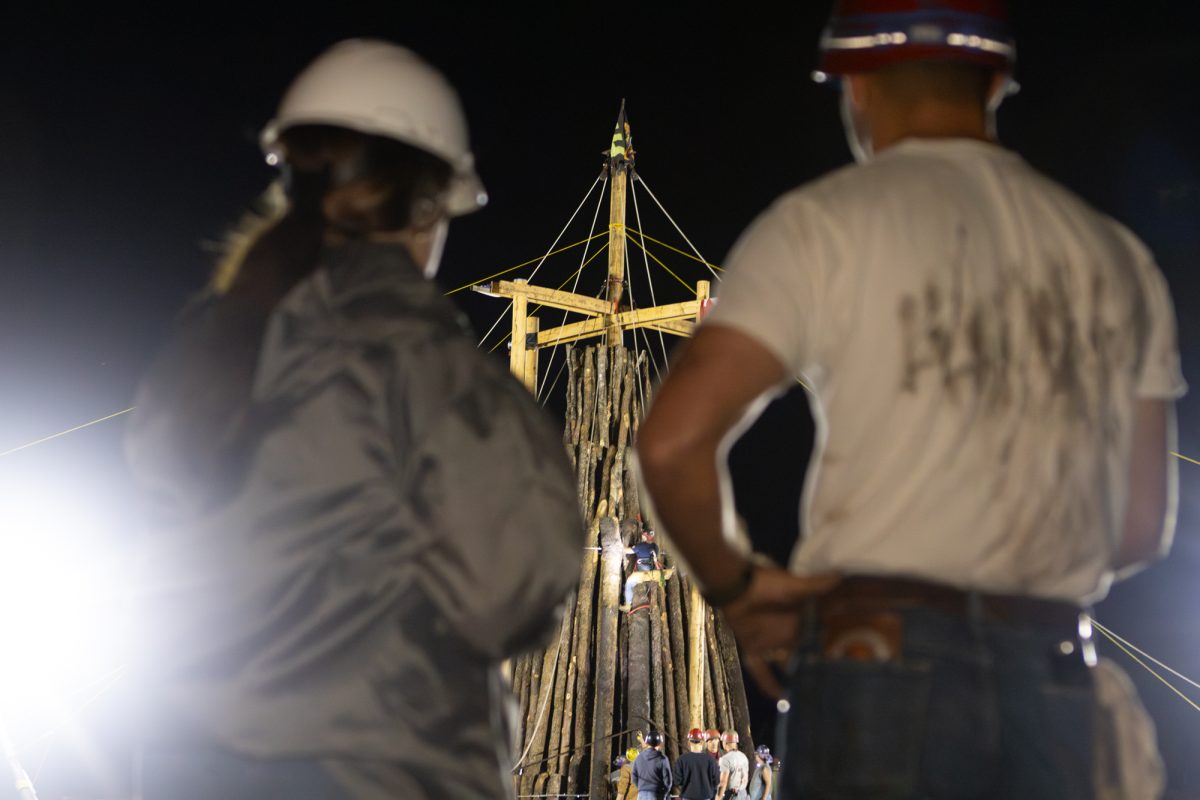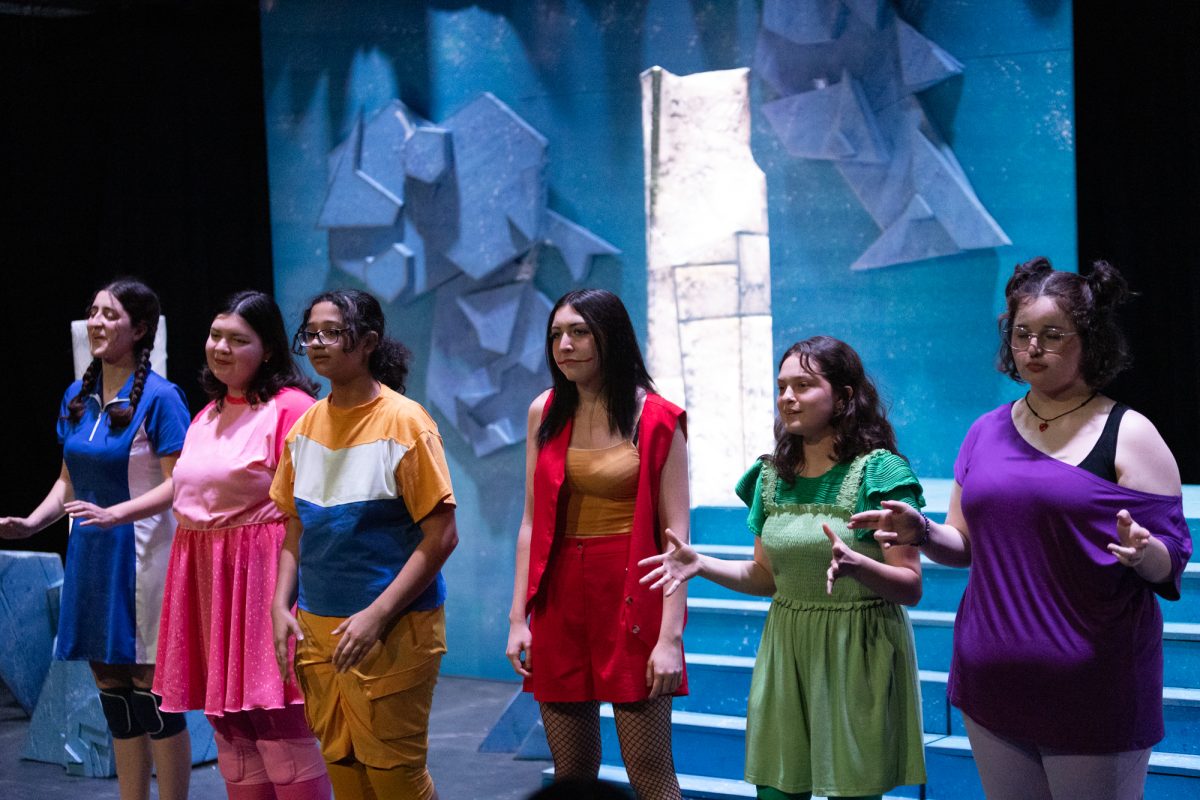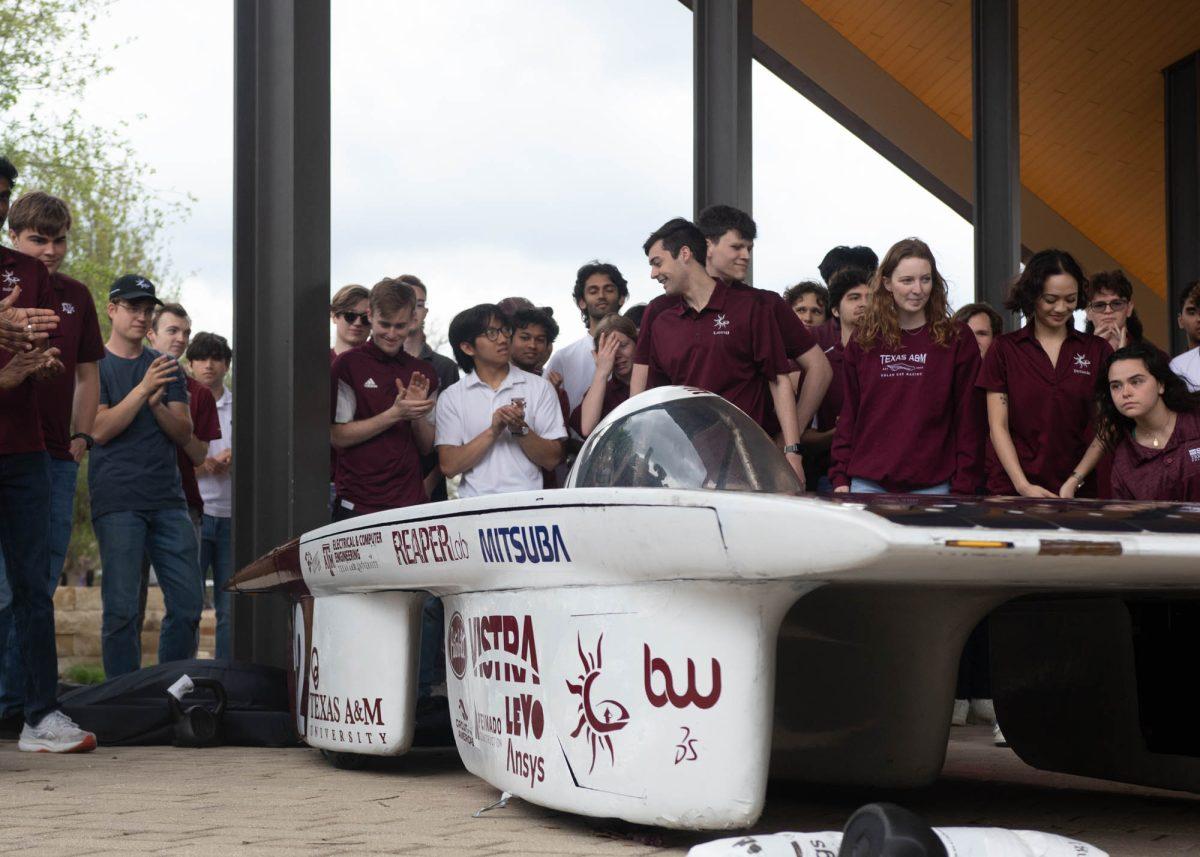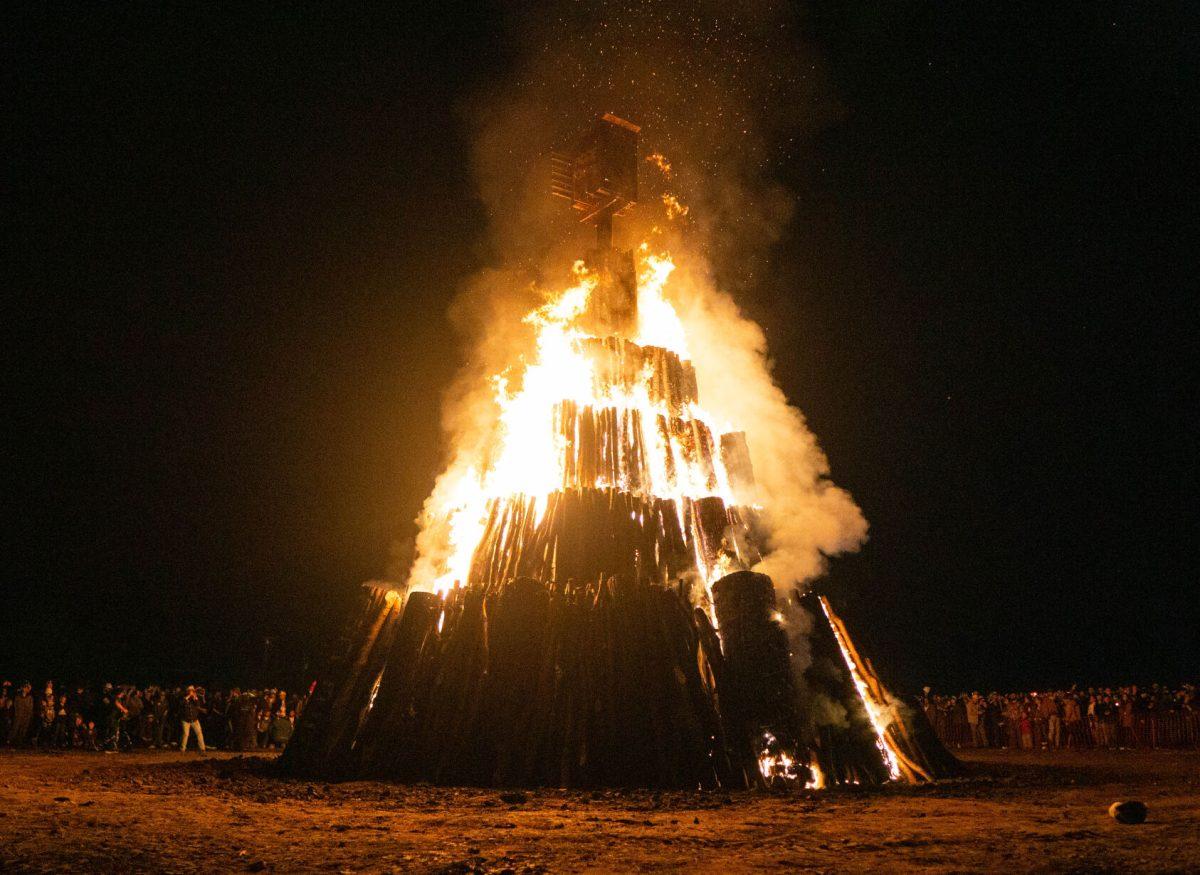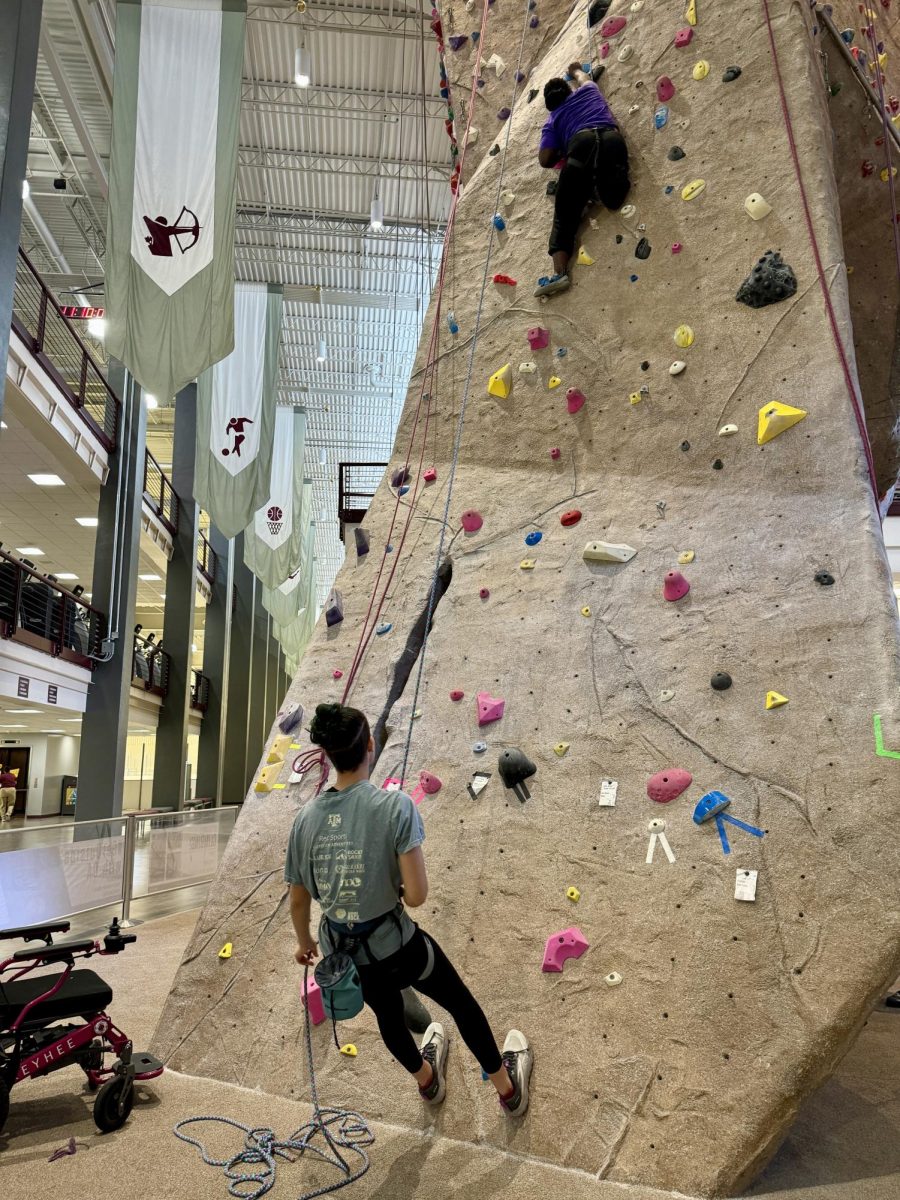Two refugee camps, two determined students, one camera and no cell phone service: This was all part of the production process that Aggies Andrea Batarse and Emily Main experienced while traveling abroad filming the documentary, “Safe Passage.”
Viewed in 65 countries and showcased both at Texas A&M and Marquette University, the 9-minute documentary sheds light on the ongoing refugee crisis in Europe shown through the stories of various refugees and imagery of their living conditions.
Batarse, international studies senior and Refuge CEO and CFO, said the idea for the documentary came after starting her business, Refuge.
Initially, Batarse and former business partner Lexi Carley, Class of 2016, sold bracelets through Refuge to provide educational opportunity. Founded in February 2015, Refuge assured children an education through bracelet sales. “One bracelet, one month,” was the original idea, Batarse said.
“There are 65 million refugees. Half of them are children, and they’re left uneducated and unable to rebuild their own country,” Batarse said.
In 2016 alone, Refuge donated more than 450 months of education and 150 vaccines through UNICEF. After successfully running the business for a year, Batarse decided to apply for the student media grant sponsored by The Center of Conflict and Development at Texas A&M. The grant awards up to $5,000 to students interested in capturing conflict-related issues through photojournalism.
Kelly Prendergast, ConDev communications manager, said the grant awards students the chance to not only fund their project but a chance to connect firsthand with those living in conflict-stricken areas.
“It’s very unique in that we allow students to cover conflict-related issues, which if you look at study-abroad in general, they do limit
where students can go for obvious reasons,” Prendergast said. “But one thing that makes our grant unique is that we do try to get students out to cover topics that are challenging and that they’re going to learn something from.”
Batarse said she always desired to travel to meet refugees through a firsthand account. After Carley graduated, Batarse asked Emily Main, Class of 2017, to join her on her journey. However, many obstacles were to be had before the cameras even started rolling, said Main.
“The biggest obstacle was deciding how we were going to show the human beings that were known to the world only as refugees; we wanted to show who these people were, are and hope to be,” Main said. “We needed to create something passionate that would spur people to action.”
Main said the team worked to research the refugee crisis.
“Many hours were spent researching how society viewed the refugee crisis, and why did they view refugees in a negative light — was it the media’s influence? In many cases, the answer was yes,” Main said. “A lot of research also went into the logistics of refugee camps; how they are run, who funds them, and the big one: Who was fleeing to these temporary shelters of ‘safety.’”
The duo traveled to Lesvos, Greece and Calais, France to Lesvos Solidarity, Moria Camp, Kara Tepe and the Jungle, respectively, to interview refugees from different walks of life.
However, they were only allowed to enter one camp in Greece and the Jungle, which has since been demolished by the French government.
Using a friendly demeanor and a listening ear, Batarse and Main approached refugees to discuss their lives before and after flight. This was all done with the help of a Palestinian refugee who worked as a professional translator, and helped the duo overcome the language barrier by translating over nine interviews.
“We met people from Iran and Syria, Iraq and Kurdistan, and we met his other translator friends who helped us translate, by the grace of God,” Batarse said. “But in the Jungle many people spoke English and were college-aged, just like us, and the sheer amount of terror that these people have gone through is obscene.”
During the filming, Batarse and Main said despite the difficult conditions of many camps, including but not limited to disease, lack of cleanliness and distribution difficulties, individuals maintained a positive attitude and came from various walks of life.
Main said the mission of their video — humanizing, legitimizing and sharing refugee experiences — was most apparent in their interactions with those who shared their stories.
“There was one day — Andrea and I were sitting with four young men from the Calais Jungle. For a moment, they weren’t refugees, and we weren’t investigative journalists; we were simply new friends enjoying each other’s company,” Main said. “We forgot the poverty around us, we forgot that we were from opposite sides of the globe, and as we shared tea and stories, all barriers of race, social status and religion were nonexistent. We were just people spending time with people. This is what we came to show the rest of the world, the human behind the label of refugee.”
Crisis through a lens
April 17, 2017
0
Donate to The Battalion
Your donation will support the student journalists of Texas A&M University - College Station. Your contribution will allow us to purchase equipment and cover our annual website hosting costs.
More to Discover



